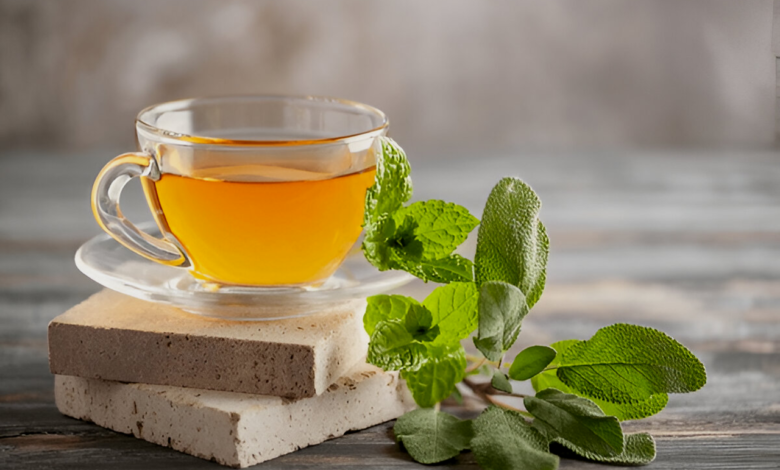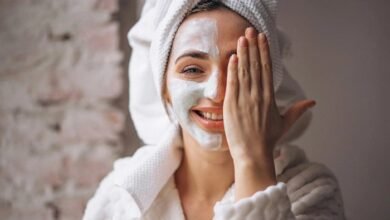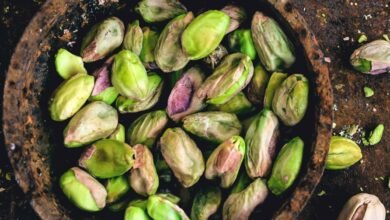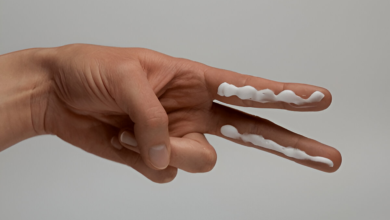Top 5 Herbal Teas for Better Sleep & Relaxation
Discover the top 5 herbal teas for better sleep & relaxation, including chamomile, valerian root, and lavender. Improve sleep naturally tonight!

In today’s fast-paced world, achieving quality sleep and relaxation can feel like an uphill battle. Stress, anxiety, and the demands of modern life often disrupt our natural sleep cycles, leaving us feeling exhausted and overwhelmed. Fortunately, nature offers a gentle and effective solution: herbal teas. For centuries, herbal teas have been revered for their calming properties and ability to promote restful sleep. Among the many options available, five herbal teas stand out for their exceptional benefits in enhancing sleep and relaxation. From chamomile to valerian root, these teas not only soothe the mind and body but also provide a natural way to unwind after a long day. In this article, we’ll explore the top 5 herbal teas for better sleep and relaxation, delving into their unique properties, benefits, and how to incorporate them into your nightly routine.
The Power of Herbal Teas for Sleep and Relaxation
Herbal teas have long been a cornerstone of traditional medicine, offering a natural remedy for a variety of ailments, including sleep disorders and stress. Unlike caffeinated beverages, herbal teas are free from stimulants, making them an ideal choice for those seeking to unwind and prepare for a restful night’s sleep. The act of sipping a warm cup of tea itself is a ritual that signals to the body that it’s time to relax. When combined with the therapeutic properties of specific herbs, this ritual becomes a powerful tool for improving sleep quality and overall well-being.
The following five herbal teas are particularly effective for promoting sleep and relaxation. Each tea has its own unique blend of compounds that work synergistically to calm the nervous system, reduce anxiety, and prepare the body for deep, restorative sleep. Whether you’re struggling with occasional sleeplessness or chronic insomnia, these herbal teas can provide the relief you need.
Chamomile Tea: The Classic Sleep Aid
Chamomile tea is perhaps the most well-known herbal tea for sleep and relaxation. Derived from the flowers of the chamomile plant, this tea has been used for centuries as a natural remedy for insomnia and anxiety. The secret to chamomile’s effectiveness lies in its high concentration of apigenin, an antioxidant that binds to specific receptors in the brain, promoting relaxation and reducing stress.
Studies have shown that chamomile tea can significantly improve sleep quality, particularly in individuals with mild to moderate insomnia. Its gentle, floral flavor makes it a comforting choice for bedtime, and its anti-inflammatory properties can also help soothe digestive issues that might interfere with sleep. To maximize its benefits, steep a chamomile tea bag or loose flowers in hot water for 5-10 minutes before bed.
Valerian Root Tea: Nature’s Sedative
Valerian root tea is another powerful herbal remedy for sleep disorders. Often referred to as “nature’s valium,” valerian root has been used since ancient times to treat insomnia and nervousness. The root contains compounds called valerenic acid and valepotriates, which interact with the brain’s GABA receptors to produce a calming effect.
Research suggests that valerian root tea can reduce the time it takes to fall asleep and improve sleep quality, particularly in individuals with chronic insomnia. However, its strong, earthy flavor may not appeal to everyone. To make it more palatable, consider blending valerian root with other herbs like peppermint or lemon balm. Drink a cup of valerian root tea about 30 minutes before bedtime to experience its full effects.
Lavender Tea: A Fragrant Relaxant
Lavender is widely recognized for its soothing aroma, but its benefits extend beyond essential oils. Lavender tea, made from the plant’s dried buds, is a delicious and effective way to promote relaxation and sleep. The key active compounds in lavender, such as linalool and linalyl acetate, have been shown to reduce anxiety and improve sleep quality.
Drinking lavender tea before bed can help calm the mind and prepare the body for sleep. Its delicate, floral flavor is both refreshing and comforting, making it a popular choice for those new to herbal teas. For an extra touch of relaxation, try inhaling the steam from your cup of lavender tea as you sip.
Lemon Balm Tea: A Gentle Calming Agent
Lemon balm, a member of the mint family, has been used for centuries to alleviate stress and promote sleep. Its mild, lemony flavor makes it a pleasant option for those who prefer a lighter herbal tea. Lemon balm contains rosmarinic acid, which has been shown to increase GABA levels in the brain, reducing anxiety and promoting relaxation.
Studies have found that lemon balm tea can improve sleep quality and reduce symptoms of insomnia. It’s also a great choice for those who experience nighttime restlessness or racing thoughts. To prepare lemon balm tea, steep the dried leaves in hot water for 5-7 minutes. For added flavor, consider combining it with chamomile or lavender.
Passionflower Tea: A Natural Tranquilizer
Passionflower tea is a lesser-known but highly effective herbal remedy for sleep and relaxation. The passionflower plant contains compounds called flavonoids, which have been shown to increase GABA levels in the brain, producing a calming effect. This makes passionflower tea an excellent choice for those struggling with anxiety-related insomnia.
Research has demonstrated that passionflower tea can improve sleep quality and reduce the time it takes to fall asleep. Its mild, slightly sweet flavor makes it an enjoyable addition to your bedtime routine. Steep passionflower leaves or tea bags in hot water for 5-10 minutes, and drink it about 30 minutes before bed for optimal results.
Incorporating Herbal Teas into Your Nightly Routine
To fully reap the benefits of these herbal teas, it’s important to incorporate them into a consistent bedtime routine. Start by setting aside 30 minutes to an hour before bed to unwind. During this time, avoid screens and other stimulating activities, and instead focus on relaxation. Brew a cup of your chosen herbal tea, and sip it slowly while engaging in calming activities like reading, journaling, or gentle stretching.
Creating a peaceful sleep environment is also crucial. Dim the lights, play soft music, or use essential oils to enhance the calming effects of your tea. Over time, your body will begin to associate these rituals with sleep, making it easier to drift off and stay asleep throughout the night.
Read More: Unlocking the Healing Properties of Herbal Remedies: Tips for Use
Conclusion
In a world where stress and sleeplessness are all too common, herbal teas offer a natural and effective way to promote relaxation and improve sleep quality. From the classic comfort of chamomile to the potent calming effects of valerian root, these five herbal teas provide a variety of options to suit different tastes and needs. By incorporating these teas into your nightly routine, you can create a soothing ritual that prepares your mind and body for restful sleep.
Remember, while herbal teas can be incredibly beneficial, they are just one piece of the puzzle when it comes to achieving better sleep and relaxation. Pairing them with a healthy lifestyle, stress management techniques, and a consistent sleep schedule will maximize their effectiveness. So, the next time you find yourself tossing and turning, reach for a cup of herbal tea and let nature guide you to a peaceful night’s rest.
FAQs
Can I drink herbal tea every night?
Yes, most herbal teas are safe to drink nightly. However, it’s important to choose caffeine-free options and consult a healthcare provider if you have any underlying health conditions.
How long before bed should I drink herbal tea?
It’s best to drink herbal tea 30 minutes to an hour before bed to allow its calming effects to take hold.
Are there any side effects of herbal teas?
While generally safe, some herbal teas may cause mild side effects like digestive discomfort or allergic reactions. Always start with small amounts to assess tolerance.
Can I mix different herbal teas?
Absolutely! Combining herbal teas like chamomile and lavender can enhance their relaxing effects and create unique flavor profiles.
Are herbal teas safe for children?
Some herbal teas, like chamomile, are safe for children in moderation. However, it’s best to consult a pediatrician before introducing herbal teas to a child’s diet.











